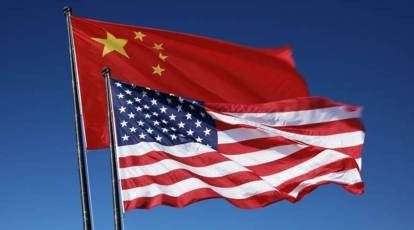China has strongly criticized Washington’s proposed new restrictions on visas for Chinese journalists, calling the move discriminatory and a potential spark for renewed tensions between the two countries.
The U.S. Department of Homeland Security has floated a rule that would limit visas for Chinese media workers to just 90 days, with the possibility of an extension. Journalists from other countries would instead receive 240-day visas, a stark difference from the current policy that allows reporters to remain for as long as their assignments last.
Speaking to reporters in Washington, Liu Pengyu, spokesperson for the Chinese embassy, condemned the proposal as an “erroneous move.” He argued the limits unfairly target Chinese nationals compared to journalists from other countries. “China has all along facilitated lawful reporting by foreign journalists, including those from the U.S.,” Liu said. “We do not want to see a new round of ‘media warfare’ between the two countries and urge the U.S. to refrain from taking this step.”
The remarks reflect China’s growing frustration over policies that restrict its nationals working in the U.S. media landscape. They also highlight the fragile state of bilateral ties, even as both nations try to maintain a tentative truce in their long-running trade disputes.
Washington, however, has long claimed the imbalance lies in Beijing’s strict limits on foreign correspondents. U.S. officials argue that while China hosts only a small number of accredited American journalists under strict supervision, the U.S. allows far greater numbers of Chinese state-backed media workers to operate freely. In their view, the proposed visa changes are meant to address this imbalance.
The proposed measure is part of a broader effort by the Trump administration to tighten immigration and visa rules. Since taking office, the administration has introduced sweeping restrictions, including visa revocations, entry bans on certain countries, and more aggressive deportation policies. Critics warn that lumping journalists into this framework risks undermining press freedoms and escalating diplomatic disputes.
Chinese officials have signaled that they may respond with reciprocal measures if Washington proceeds. In recent years, disputes over media access have already led to tit-for-tat expulsions of reporters, as both countries expelled or denied visas to each other’s journalists. Observers fear the latest move could trigger another round of retaliations, further shrinking the space for independent reporting on both sides.
For China, the stakes go beyond media access. The country views the proposal as part of a broader U.S. strategy to contain its global influence by limiting cultural, academic, and informational exchanges. Officials in Beijing argue that such restrictions undermine trust and reduce opportunities for cooperation in other fields, from trade to climate policy.
Meanwhile, U.S. press organizations and advocacy groups are watching the situation closely. While some acknowledge the challenges posed by China’s restrictive policies toward foreign reporters, many have raised concerns that targeting visas in this way could ultimately harm the principle of free press access. By setting limits based on nationality, they argue, Washington risks signaling that journalism is subject to political disputes rather than protected as a universal right.
The timing of the proposal also carries political weight. It comes as the Trump administration seeks to intensify its immigration agenda ahead of key elections, presenting itself as tough on foreign influence. Immigration advocates, however, warn that such measures risk alienating allies, provoking rivals, and reducing the U.S.’s standing as a global leader on democratic values.
Despite the rhetoric, some analysts note that the measure remains a proposal and could be adjusted before being finalized. Extensions for journalists would still be possible under the draft plan, offering some flexibility. However, the uncertainty created by shorter visa terms could discourage reporters from accepting assignments in the U.S. and disrupt coverage of key international events.
As both Washington and Beijing weigh their next moves, the dispute underscores how even seemingly technical policy changes can deepen mistrust between the two powers. For now, China has made clear its opposition, warning that the U.S. risks provoking a new front in their already strained relationship if it moves forward with limiting visas for Chinese journalists.







